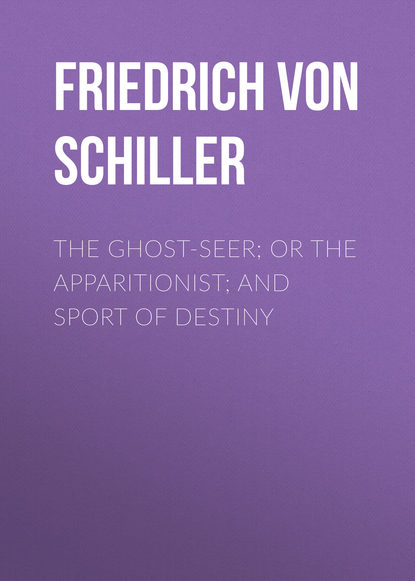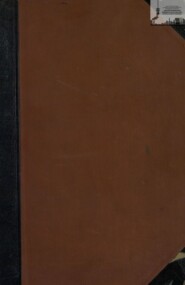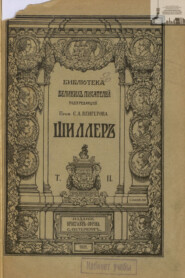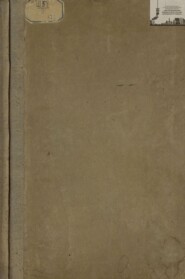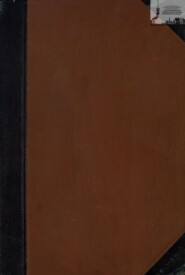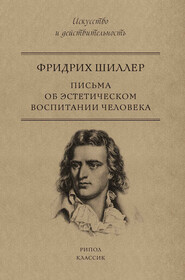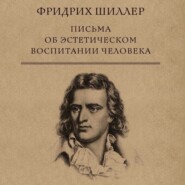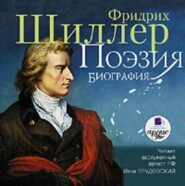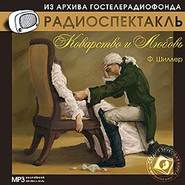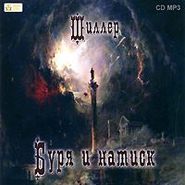По всем вопросам обращайтесь на: info@litportal.ru
(©) 2003-2024.
✖
The Ghost-Seer; or the Apparitionist; and Sport of Destiny
Настройки чтения
Размер шрифта
Высота строк
Поля
“That I am ready to do,” replied the Sicilian, turning to us, “as soon as these ladies and gentlemen have left us.”
“Why only then?” exclaimed the Englishman. “A courageous ghost will surely not be afraid of a cheerful company.”
“I would not answer for the consequences,” said the Sicilian.
“For heaven’s sake, no!” cried the ladies, starting affrighted from their chairs.
“Call your ghost,” said the abbe, in a tone of defiance, “but warn him beforehand that there are sharp-pointed weapons here.” At the same time he asked one of the company for a sword.
“If you preserve the same intention in his presence,” answered the Sicilian, coolly, “you may then act as you please.” He then turned towards the prince: “Your highness,” said he, “asserts that your key has been in the hands of a stranger; can you conjecture in whose?”
“No”
“Have you no suspicion?”
“It certainly occurred to me that” —
“Should you know the person if you saw him?”
“Undoubtedly.”
The Sicilian, throwing back his cloak, took out a looking-glass and held it before the prince. “Is this the man?”
The prince drew back with affright.
“Whom have you seen?” I inquired.
“The Armenian.”
The Sicilian concealed his looking-glass under his cloak.
“Is it the person whom you thought of?” demanded the whole company.
“The same.”
A sudden change manifested itself on every face; no more laughter was to be heard. All eyes were fixed with curiosity on the Sicilian.
“Monsieur l’Abbe! The matter grows serious,” said the Englishman. “I advise you to think of beating a retreat.”
“The fellow is in league with the devil,” exclaimed the Frenchman, and rushed out of the house. The ladies ran shrieking from the room. The virtuoso followed them. The German prebendary was snoring in a chair. The Russian officer continued sitting in his place as before, perfectly indifferent to what was passing.
“Perhaps your attention was only to raise a laugh at the expense of that boaster,” said the prince, after they were gone, “or would you indeed fulfil your promise to us?”
“It is true,” replied the Sicilian; “I was but jesting with the abbe. I took him at his word, because I knew very well that the coward would not suffer me to proceed to extremities. The matter itself is, however, too serious to serve merely as a jest.”
“You grant, then, that it is in your power?”
The sorcerer maintained a long silence, and kept his look fixed steadily on the prince, as if to examine him.
“It is!” answered he at last.
The prince’s curiosity was now raised to the highest pitch. A fondness for the marvellous had ever been his prevailing weakness. His improved understanding and a proper course of reading had for some time dissipated every idea of this kind; but the appearance of the Armenian had revived them. He stepped aside with the Sicilian, and I heard them in very earnest conversation.
“You see in me,” said the prince, “a man who burns with impatience to be convinced on this momentous subject. I would embrace as a benefactor, I would cherish as my best friend him who could dissipate my doubts and remove the veil from my eyes. Would you render me this important service?”
“What is your request!” inquired the Sicilian, hesitating.
“For the present I only beg some proof of your art. Let me see an apparition.”
“To what will this lead?”
“After a more intimate acquaintance with me you may be able to judge whether I deserve further instruction.”
“I have the greatest esteem for your highness, gracious prince. A secret power in your countenance, of which you yourself are as yet ignorant, drew me at first sight irresistibly towards you. You are more powerful than you are yourself aware. You may command me to the utmost extent of my power, but – ”
“Then let me see an apparition.”
“But I must first be certain that you do not require it from mere curiosity. Though the invisible powers are in some degree at my command, it is on the sacred condition that I do not abuse my authority.”
“My intentions are most pure. I want truth.”
They left their places, and removed to a distant window, where I could no longer hear them. The English lord, who had likewise overheard this conversation, took me aside. “Your prince has a noble mind. I am sorry for him. I will pledge my salvation that he has to do with a rascal.”
“Everything depends on the manner in which the sorcerer will extricate himself from this business.”
“Listen to me. The poor devil is now pretending to be scrupulous. He will not show his tricks unless he hears the sound of gold. There are nine of us. Let us make a collection. That will spoil his scheme, and perhaps open the eyes of the prince.”
“I am content.” The Englishman threw six guineas upon a plate, and went round gathering subscriptions. Each of us contributed some louis-d’ors. The Russian officer was particularly pleased with our proposal; he laid a bank-note of one hundred zechins on the plate, a piece of extravagance which startled the Englishman. We brought the collection to the prince. “Be so kind,” said the English lord, “as to entreat this gentleman in our names to let us see a specimen of his art, and to accept of this small token of our gratitude.” The prince added a ring of value, and offered the whole to the Sicilian. He hesitated a few moments. “Gentlemen,” answered he, “I am humbled by this generosity, but I yield to your request. Your wishes shall be gratified.” At the same time he rang the bell. “As for this money,” continued he, “to which I have no right myself, permit me to send it to the next monastery to be applied to pious uses. I shall only keep this ring as a precious memorial of the worthiest of princes.”
Here the landlord entered; and the Sicilian handed him over the money. “He is a rascal notwithstanding,” whispered the Englishman to me. “He refuses the money because at present his designs are chiefly on the prince.”
“Whom do you wish to see?” asked the sorcerer.
The prince considered for a moment. “We may as well have a great man at once,” said the Englishman. “Ask for Pope Ganganelli. It can make no difference to this gentleman.”
The Sicilian bit his lips. “I dare not call one of the Lord’s anointed.”
“That is a pity!” replied the English lord; “perhaps we might have heard from him what disorder he died of.”
“The Marquis de Lanoy,” began the prince, “was a French brigadier in the late war, and my most intimate friend. Having received a mortal wound in the battle of Hastinbeck, he was carried to my tent, where he soon after died in my arms. In his last agony he made a sign for me to approach. ‘Prince,’ said he to me, ‘I shall never again behold my native land. I must, therefore, acquaint you with a secret known to none but myself. In a convent on the frontiers of Flanders lives a – ’ He expired. Death cut short the thread of his discourse. I wish to see my friend to hear the remainder.”
“You ask much,” exclaimed the Englishman, with an oath. “I proclaim you the greatest sorcerer on earth if you can solve this problem,” continued he, turning to the Sicilian. We admired the wise choice of the prince, and unanimously gave our approval to the proposition. In the meantime the sorcerer paced up and down the room with hasty steps, apparently struggling with himself.
“This was all that the dying marquis communicated to you?”
“It is all.”
“Did you make no further inquiries about the matter in his native country?”





